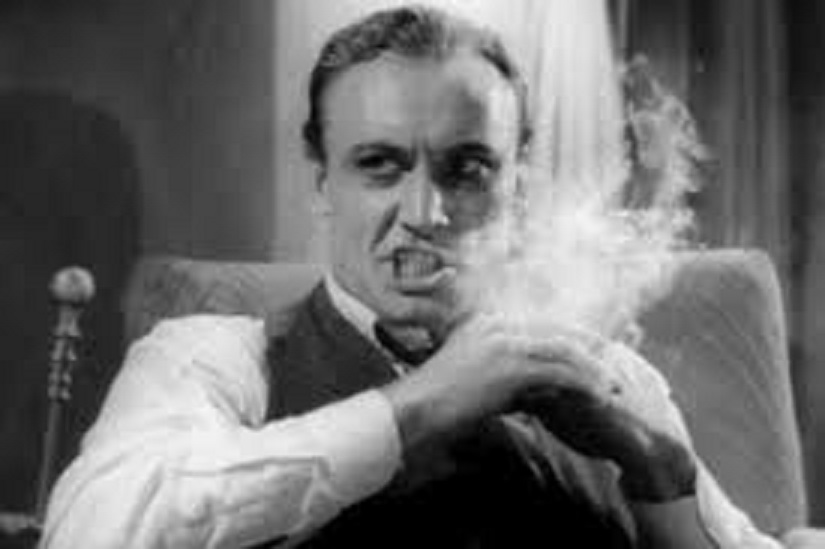A common piece of received wisdom about cannabis is that it causes paranoia. This paranoia is part of a wider suite of psychiatric problems that cannabis is erroneously blamed for – problems that justify putting people in cages to protect them from themselves. As this article will examine, the argument that cannabis should be prohibited because it causes paranoia is invalid.
The truth is that it’s prohibition that causes paranoia. Cannabis itself is medicinal, and has never caused paranoia in and of itself.
Proof for this is unnecessary for anyone who has used cannabis in the Netherlands or, more recently, in places like Colorado, Uruguay, Washington or California. Anyone who has done this can tell you that the same kind of paranoia that people sometimes get when using cannabis in New Zealand does not occur.
There are clear reasons why using cannabis creates paranoia in places like New Zealand.
The first group of reasons relate to the Police. The fact is that the Police do not make moral judgments about the laws they are enforcing. To the sort of person who becomes a Police officer, there’s no difference between arresting a murderer, arresting a cannabis user or arresting someone for being a member of a race that the Government has targeted for extermination. The Police just enforce the law.
Therefore, anyone using cannabis in a place where it is illegal has every reason to be paranoid, because there’s a chance that if their activity was discovered by the Police they could end up locked in a cage. It’s possible to get seven years’ imprisonment for growing a medicinal cannabis plant in New Zealand, and even though a custodial sentence is unlikely for simple possession the fear is reasonable.
All of the reasons within this group have been created directly by cannabis prohibition itself. If cannabis was legal, there would be no reason to fear the Police or the “Justice” system whenever one used it or had it in one’s possession.
The second group of reasons relate to society. When a person uses cannabis and realises that it is nothing like what it is said to be like, it’s natural to ask some very deep and dark questions about the nature of society. In particular, one comes to ask how it is that cannabis could have become illegal in the first place, given that it’s clearly a medicine that has beneficial effects.
Eventually this leads to people asking some extremely difficult questions. If it was only possible to make cannabis illegal by virtue of telling an enormous amount of lies about it, what nefarious forces controlled the resources necessary to propagate all these lies? Who is really in control of this system, if they can make lies into a truth that is parrotted by Police, politicians, teachers and doctors?
And if doctors didn’t even know that cannabis is medicinal despite the stacks and stacks of evidence in favour of the idea, what else don’t they know? Or, even worse, if they did know that cannabis was medicinal but lied about it for sake of greater profit or for fear of Government disapproval, what else could they be lying about?
Naturally, all this sort of thinking is capable of creating intense anxiety – but it’s cannabis prohibition that makes this possible. Without cannabis prohibition, none of this reasoning makes any sense, and is unlikely to be entertained. A pleasant cannabis experience will not cause a person to question the structure of society, unless that society has not already told him that cannabis was the boogeyman.
In any case, many drugs can be anxiogenic if a person does not use them correctly. Caffeine can easily cause paranoia and anxiety if a person who isn’t used to it takes too much, and this is considered humourous by most people, not a reason to ban coffee. If cannabis causes a person anxiety, they should either use a different strain (preferably one with more CBD) or abstain from using it altogether. Weed is not necessarily for everyone!
It is possible that cannabis can cause a kind of existential paranoia. Many people are conditioned to never think about deeper philosophical questions, and some of these people discover that the cannabis high induces them to do so. Cannabis can have a massively deconditioning effect, why is why artists use it, but this can lead to the user entertaining lines of thought that have otherwise long been suppressed.
The way to deal with this, however, is either to fix it by philosophy or to avoid using cannabis (or to try a form of cannabis with less THC in it). Life is anxiogenic in a myriad of ways, and therefore it’s unreasonable to expect that the deeply contemplative mindset brought about by cannabis use should leave a person immune to paranoia. It is a similar case with most other cannabis-related anxiety.
The argument that cannabis ought to be illegal because it causes paranoia is false. The majority of paranoia brought on by cannabis use is a function of prohibition. If cannabis prohibition went away, most of the paranoia associated with it would also go away, therefore we’re better off if it were legal.
*
This article is an excerpt from The Case For Cannabis Law Reform, compiled by Vince McLeod and due for release by VJM Publishing in the summer of 2018/19.

